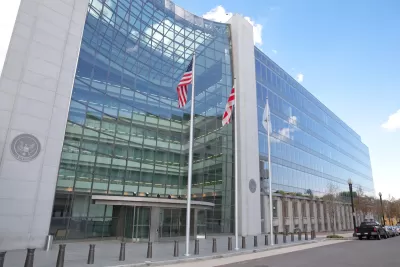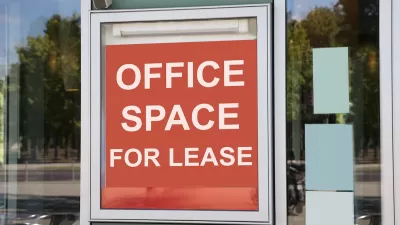Many federal agencies are sitting on underutilized buildings, causing a congressional committee to call into question the need for so much real estate.

A report from the U.S. Government Accountability Office reveals that 17 out of 24 federal agencies are only using 25 percent of their headquarters buildings’ office space, calling into question the need for the 360 million square feet of office space managed by the General Services Administration. Nish Amarnath reports on the issue for Smart Cities Dive.
Calling the finding ‘alarming,’ Senate Committee on Environment and Public Works Chairman Senator Tom Carper (D-Del) said at a hearing that the vacancy is “not a sustainable or fiscally responsible way to manage our federal real estate.”
With more federal workers working remotely, committee members called on the federal government to stop wasting taxpayer funds on empty or underutilized buildings. “Committees have done a lot of legislative work to support policies that will reduce emissions. I would be interested to know the emissions associated with heating and cooling these buildings that are unoccupied,” said Sen. Shelley Moore Capito (R-W.Va).
According to Amarnath, “Capito recommended that federal agencies identify their current and future space needs to help the GSA evaluate lease options or invest appropriately in existing buildings.” With many leases expiring in 2027, agencies could take this opportunity to reevaluate their needs. “David Marroni, acting director of physical infrastructure at the GAO, pointed to the importance of having more consistent benchmarks and targets for measuring and determining space utilization. That involves developing more uniform standards for space measurement and assessing what constitutes full utilization rather than using a one-size-fits-all approach, he said at the hearing.”
FULL STORY: ‘Empty’ federal buildings under scrutiny

Alabama: Trump Terminates Settlements for Black Communities Harmed By Raw Sewage
Trump deemed the landmark civil rights agreement “illegal DEI and environmental justice policy.”

Study: Maui’s Plan to Convert Vacation Rentals to Long-Term Housing Could Cause Nearly $1 Billion Economic Loss
The plan would reduce visitor accommodation by 25% resulting in 1,900 jobs lost.

Planetizen Federal Action Tracker
A weekly monitor of how Trump’s orders and actions are impacting planners and planning in America.

Waymo Gets Permission to Map SF’s Market Street
If allowed to operate on the traffic-restricted street, Waymo’s autonomous taxis would have a leg up over ride-hailing competitors — and counter the city’s efforts to grow bike and pedestrian on the thoroughfare.

Parklet Symposium Highlights the Success of Shared Spaces
Parklets got a boost during the Covid-19 pandemic, when the concept was translated to outdoor dining programs that offered restaurants a lifeline during the shutdown.

Federal Homelessness Agency Places Entire Staff on Leave
The U.S. Interagency Council on Homelessness is the only federal agency dedicated to preventing and ending homelessness.
Urban Design for Planners 1: Software Tools
This six-course series explores essential urban design concepts using open source software and equips planners with the tools they need to participate fully in the urban design process.
Planning for Universal Design
Learn the tools for implementing Universal Design in planning regulations.
Caltrans
Smith Gee Studio
Institute for Housing and Urban Development Studies (IHS)
City of Grandview
Harvard GSD Executive Education
Toledo-Lucas County Plan Commissions
Salt Lake City
NYU Wagner Graduate School of Public Service





























